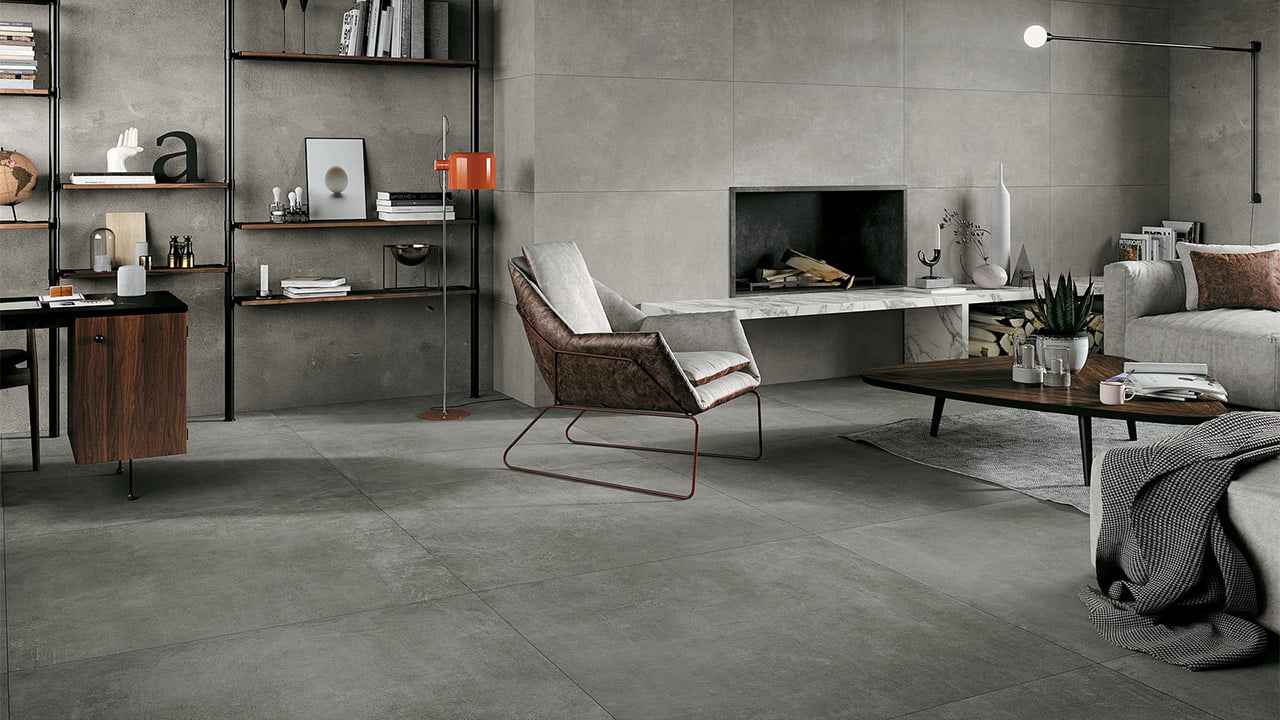How to choose your perfect tile for the walls and floors of your next project in Miami

Selecting the right porcelain tile for each surface is one of the most important decisions in a Miami design project. Although at first glance a wall tile and a floor tile may look similar, their technical characteristics, such as thickness, strength and installation, make them very different. Keeping these aspects in mind will help you guarantee not only the aesthetics, but also the functionality and durability of your project.
Thickness and resistance
The thickness of a porcelain tile is not just a matter of aesthetics; it defines its ability to withstand weight and traffic.
- Porcelain floor tiles typically range in thickness from approximately 5/16″ (8 mm) to 3/8″ (10 mm), depending on whether they will be used indoors, outdoors or in projects such as swimming pools. These pieces are designed to withstand heavy loads and resist the constant wear and tear of everyday use. For exteriors, pavers are typically 13/16″ (20mm) thick, which makes them especially resistant to flexing, even in areas where vehicles circulate.
- Wall slabs, on the other hand, are usually thinner, approximately 1/4″ (6mm) to 5/16″ (8mm), as they do not need to support weight. This also facilitates installation on vertical surfaces.
A porcelain tile designed for flooring can also be installed on walls, which allows for visual continuity in the design. However, it is not recommended to use wall tiles on floors, as they usually do not have the same strength needed to support traffic and weight.
Installation technique
The installation of a tile changes depending on whether it is cladding or flooring, and technical details are essential to avoid future problems.
- In flooring, especially in high traffic or outdoor areas such as terraces and pool projects, it is crucial to use a strong and water resistant adhesive. In addition, it is advisable to prepare the surface with a previous waterproofing to avoid filtrations, something indispensable in climates such as Miami.
- On walls, the adhesive can be lighter, but on large slabs, such as tiles 24″x48″ or larger, it is essential to use the double-gluing technique to ensure a durable bond.
- Expansion joints in flooring are another important aspect to prevent cracking due to temperature or humidity changes, especially in exteriors. In projects with decorative mosaic or anti-slip tiles, specialized grout should be used to ensure a safe and functional surface.
How light influences tile color
One of the most technical and often overlooked factors in choosing a porcelain tile is how light affects its color and finish. Lighting, whether natural or artificial, significantly changes the perception of color.
For example, a porcelain tile installed on the floor may appear darker than the same tile installed on a wall because of the angle at which light strikes it. This effect can also vary according to the time of day or the type of lighting in the space. For this reason, it is essential to test the pieces in the exact location where they will be installed, evaluating how they look under different lighting conditions. This is especially important in projects that include large areas or combinations of tiles and slabs in similar tones.
Specialty tiles for specific areas
Each space requires specific materials, and this is even more important in areas such as bathrooms, kitchens or outdoor areas such as terraces and pools:
- Anti-slip tiles: Indispensable to ensure safety in wet areas, such as pool edges or showers. These pieces have textured finishes designed to prevent slipping without sacrificing design.
- Decorative porcelain mosaic tiles: Perfect for wall, shower or pool accents, they add a unique and personalized touch to any project.
- Porcelain slabs: Ideal for unifying spaces and minimizing visible joints, providing a modern and sophisticated aesthetic.
The choice between wall and floor tile goes far beyond its appearance. Details such as thickness, installation technique and interaction with light are key factors that can influence the final result. In Miami, where projects often combine indoor and outdoor, having materials that create continuity such as our anti-slip tiles, decorative mosaics and high quality porcelain tiles is fundamental to achieve a functional and durable design.
We invite you to visit our Italgres showroom in Doral, where you can see all these options up close and receive personalized advice for your next project. Our team of experts is ready to help you find the perfect materials to meet your needs and enhance your spaces.



 Español
Español